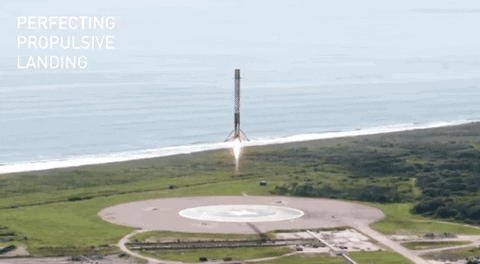IBM Data Science Capstone Project
In this capstone project, we will predict if the Falcon 9 first stage will land successfully. SpaceX advertises Falcon 9 rocket launches on its website with a cost of 62 million dollars; other providers cost upward of 165 million dollars each, much of the savings is because SpaceX can reuse the first stage. Therefore if we can determine if the first stage will land, we can determine the cost of a launch. With the help of the data science findings and models, the competing startup can make more informed bids against SpaceX for a rocket launch.
Assuming the role of a data scientist of a startup rivaling SpaceX, the goal of this project is to create a machine learning pipeline to predict the landing outcome of the first stage in the future; and in the process leading upto the final goal, we follow the data science methodology involving data collection, data wrangling, exploratory data analysis, data visualization, model development and model evaluation.
- To apply data science toolkit and machine learning in order to accurately predict the likelihood of the first stage rocket landing successfully, and thus determine the cost of a launch.
- Explore the data in order to obtain more insight from the data.
- Data Collection with API
- Data Collection with Web Scraping
- Data Wrangling
- EDA with Visualization
- EDA with SQL
- Interactive Visual Analytics with Folium
- Interactive Dashboard Application with Plotly Dash
- Predictive Analysis - Machine Learning
The analysis aims to identify the factors for a successful rocket landing. To make this determination, the following methodologies were used:
- Collected data using SpaceX REST API and web scraping techniques
- Wrangled data to create success/fail outcome variable
- Explored data with data visualization techniques, considering the following factors: payload, launch site, flight number and yearly trend
- Analyzed the data with SQL, calculating the following statistics: total payload, payload range for successful launches, and total number of successful and failed outcomes
- Explored launch site success rates and proximity to geographical markers
- Visualized the launch sites with the most success and successful payload ranges
- Built Models to predict landing outcomes using K-nearest neighbour (KNN), decision tree, support vector machine and logistic regression.
If you're new to this repository or data science in general, here's how you can get started:
- Clone the repository to your local machine using
git clone https://github.com/shashankarya9999/SpaceX-Falcon9-First-Stage-Landing-Prediction. - Navigate to the project you're interested in within the repository.
- Run, and explore the code.
Contributions are most welcome! If you want to contribute, make sure to go through CONTRIBUTING.md. Any improvements, bug fixes, or additional projects are greatly appreciated.
This project is licensed under the MIT License. You are free to use the code and resources for educational or personal purposes with citation or reference to the original code and resources used.
I welcome any feedback, discussion, suggestion or question regarding any of the projects or any kind of sponsorships for the repository. Feel free to reach out to me via email at shashankarya9831@gmail.com
